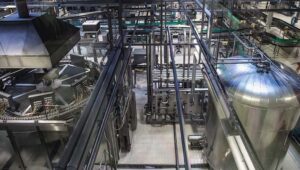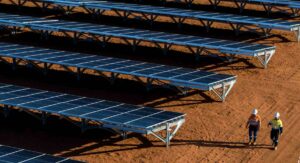Australia’s gas industry talks a big game on the continued use of its distribution networks to deliver “renewable gas” to homes, but a new report shows its money – at least in Victoria – is well and truly on electrification.
The report from the Institute of Energy Economics and Financial Analysis shows that while Victoria’s gas distribution networks continue to sell “green gas” as a near-term option for home energy supply, they are investing very little in that outcome.
IEEFA says the companies proposed a “very modest expenditure” of $A19 million over the next five years to prepare their networks for renewable hydrogen, “which the regulator allowed despite finding that it was non-conforming with respect to the National Gas Laws.
A further $A6 million in proposed operating expenditure was sought for “renewable gas” promotional campaigns, to be partially charged back to consumers, the report says.
Meanwhile, the gas companies asked the AER to approve the collection of an additional $A461 million from consumers over the next five years to cover the costs of households quitting gas and going all electric.
To justify this amount, the industry argues that economic and policy incentives in favour of renewable electricity will lead to an exodus from fossil gas, leaving them – the owners of the gas networks – with stranded assets.
In Victoria, where the Andrews government recently moved to ban new gas connections to new-build homes, it’s not a totally wild scenario – the Australian Energy Regulator wound up agreeing to $A333 million.
But if they’re so sure of this scenario, the IEEFA analysts ask, why still promote green gas? Alternatively, if you’re serious about supplying green gas, where’s the investment?

“[Gas companies] have asserted that… distribution networks will likely be repurposed to deliver ‘renewable gas’ to homes, derived from either biomethane or hydrogen, instead of the current supply of fossil gas.
“These campaigns are inconsistent with the compelling evidence that electrification is the best option for decarbonising household fossil use,” write authors Jay Gordon and Kevin Morrison.
“Electrification would cost less than switching to biomethane or hydrogen. Moreover, there are serious technical constraints to relying on biomethane or hydrogen for household energy use; by contrast, electric appliances for cooking, space heating and water heating are mature and already widely used by many Australian households.
But “especially concerning,” says IEEFA, “is the fact that the messages presented in Victorian gas distribution networks’ ‘renewable gas’ campaigns appear inconsistent with their own statements to regulators, their investment plans, the opinion of the regulator and energy market consumer representatives.”
This could wind up coming back to bite the gas companies in a number of ways, the analysts warn. But the biggest losers would probably be the consumers.
“The size of investments made by customers who continue to buy gas appliances is likely to number in the billions of dollars,” the report says.
“In the likely event that a ‘renewable gas’ future does not eventuate, attempts to recover some of these sunk costs by legal means could have highly material financial consequences for the network businesses.
“In IEEFA’s opinion, financiers should consider these risks in their allocation of capital,” the authors say.
“Governments and regulators should also act to protect consumers, by ensuring that the networks’ campaigning activities are lawful under Australian consumer law, and that expenditure on ‘renewable gas’ activities is not approved where it is not in the long-term interests of energy consumers.”









